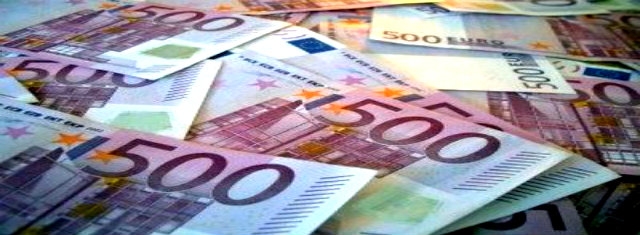Politics
EU boosts humanitarian aid to €156 million
Increasing needs in the Sahel region

Euros (Source: Stock Photography)
USPA NEWS -
.The EU boosts humanitarian aid to €156 million in 2015 to meet the increasing needs in the Sahel region - This new aid has been announced by EU Commissioner for Humanitarian Aid and Crisis Management Christos Stylianides, who is currently in Senegal and about to visit Mali.
The European Union will give €156 million in humanitarian funding in 2015 to the Sahel region, where close to 20 million people don't know where their next meal will come from and more than 5 million children suffer from acute malnutrition. The UK is contributing to the European Union's funding for the Sahel with €45 million to respond to the humanitarian challenges in the region.
"Sahel is the poorest region in the world and must continue to be our high priority. We need to prevent acute malnutrition and food insecurity from becoming a norm in West Africa", said Commissioner Stylianides. "Saving lives is the first priority. At the same time, we need to address the underlying causes of malnutrition and invest in sustainable development policies to reach the "Zero Hunger" goal within the next 20 years. Strengthening the resilience of the local communities to future shocks remains a key priority".
EU humanitarian aid for the Sahel will go to several priorities this year:
€32 million will help assist the victims of malnutrition and the security crisis in Mali;
€8 million will be used to help contain the food and security crisis in Nigeria;
€35 million will go to Chad to tackle malnutrition and help the increasing number of refugees coming from the Central African Republic (CAR);
€4.4 million in support for the malnourished people and refugees from CAR in Cameroon;
€20.6 million will be used to support partners that work at the regional level in West Africa to fight food insecurity and malnutrition;
€32 million will help assist the victims of malnutrition and the security crisis in Mali;
€8 million will be used to help contain the food and security crisis in Nigeria;
€35 million will go to Chad to tackle malnutrition and help the increasing number of refugees coming from the Central African Republic (CAR);
€4.4 million in support for the malnourished people and refugees from CAR in Cameroon;
€20.6 million will be used to support partners that work at the regional level in West Africa to fight food insecurity and malnutrition;
The rest of the funds (€56 million) will cover malnutrition and food assistance in the rest of the Sahel countries (Senegal, Mauritania, Burkina Faso, Niger, Gambia).
Background
This year will be very difficult for many people in the Sahel region. Drought in the second half of 2014 has jeopardised harvests and can increase the volatility of food prices, making it even harder for the poorest to buy food. This is complicated by the conflicts in northern Mali and Nigeria, as well as by the threat of epidemics such as Ebola, measles and cholera.
Background
This year will be very difficult for many people in the Sahel region. Drought in the second half of 2014 has jeopardised harvests and can increase the volatility of food prices, making it even harder for the poorest to buy food. This is complicated by the conflicts in northern Mali and Nigeria, as well as by the threat of epidemics such as Ebola, measles and cholera.
Meanwhile, the Sahel region is still reeling from four consecutive food and nutrition crises (2005, 2008, 2010 and 2012). The growing humanitarian needs require both massive relief aid and measures to address the root causes of food insecurity and malnutrition and increase the resilience of the poorest people. The European Union has been instrumental in the creation of AGIR, a global alliance to strengthen resilience in West Africa which has set itself a “˜Zero hunger´ goal by 2032.
Since the start of 2014, the European Commission has provided more than €350 million to assist the people affected by the Sahel crisis. In addition, the Commission and Member States are coordinating their actions in terms of security and development in the Sahel through a new Action Plan, due to be presented by the end of March 2015. The Action Plan will reinforce EU efforts to promote good governance, human rights and democracy, education, to prevent radicalisation, to manage borders and migration issues and to support initiatives in favour of youth empowerment.
Source: European Commission
Source: European Commission
more information: https://ec.europa.eu/
Liability for this article lies with the author, who also holds the copyright. Editorial content from USPA may be quoted on other websites as long as the quote comprises no more than 5% of the entire text, is marked as such and the source is named (via hyperlink).





